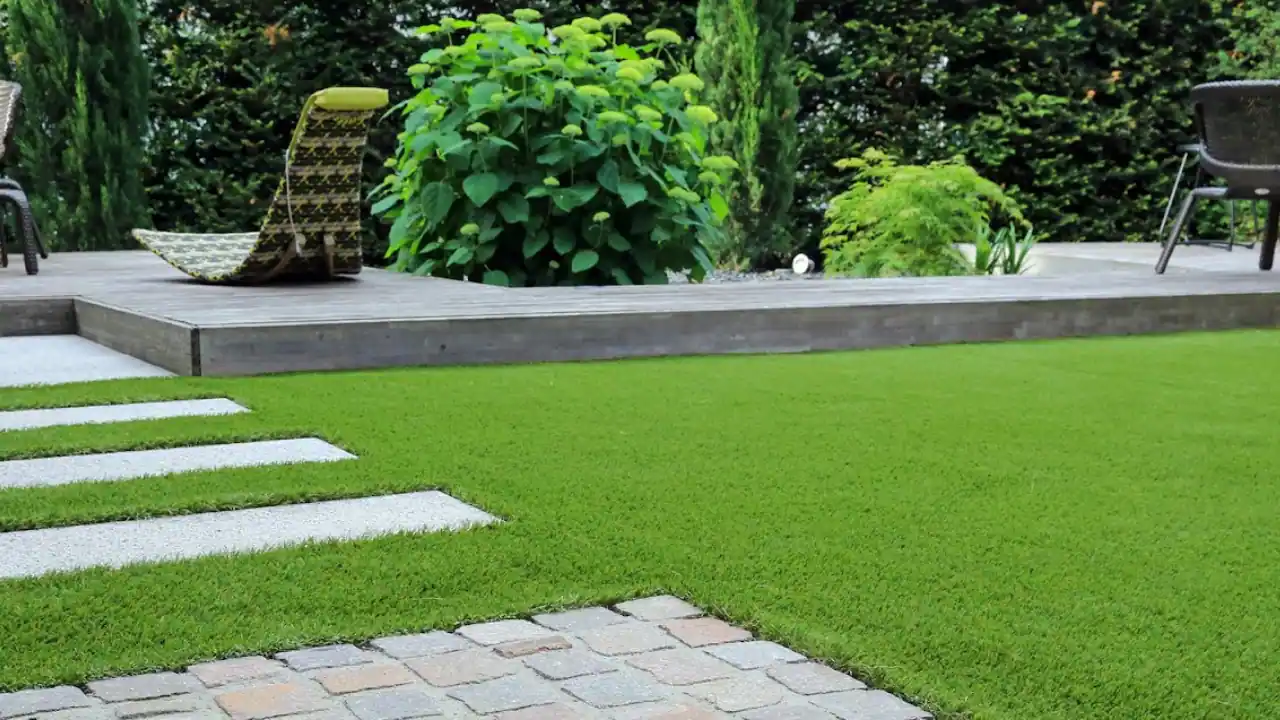Garden Landscaping: Transforming Your Outdoor Space
Introduction
Garden Landscaping plays a crucial role in enhancing the aesthetics and functionality of your outdoor space. Whether you have a small courtyard or a large backyard, the art of landscaping can transform your garden into a beautiful and serene retreat. This article explores the various aspects of Garden Landscaping, from design and construction to aftercare and maintenance, ensuring your garden remains a delightful extension of your living space.
The Importance of Garden Landscaping
Enhancing Visual Appeal
Garden Landscaping is not just about planting flowers and mowing the lawn; it’s about creating a visually appealing environment that complements your home. A well-designed garden can enhance the overall appearance of your property, making it more inviting and attractive. By incorporating various elements such as pathways, lighting, and water features, you can create a garden that is both functional and beautiful.
Improving Quality of Life
A thoughtfully landscaped garden can significantly improve your quality of life. Garden Landscaping allows you to create spaces where you can relax, entertain, and connect with nature. Whether you prefer a tranquil zen garden or a lively entertainment area, the right landscaping can make your outdoor space a haven for relaxation and enjoyment.
Maximizing Space and Functionality
Garden Landscaping helps in making the most of your available space. By strategically planning the layout and flow of your garden, you can create distinct zones for different activities such as dining, lounging, and playing. This not only maximizes the use of your space but also ensures that each area serves a specific purpose, making your garden more functional and enjoyable.
The Garden Landscaping Process
Consultation and Planning
The first step in any Garden Landscaping project is consultation and planning. During this phase, landscape designers assess your space, discuss your needs and preferences, and start sketching out ideas. This is where the foundation of your garden design is laid, considering factors such as the size and shape of your garden, sun and shade patterns, and the desired style.
Designing Your Dream Garden
Once the initial consultation is complete, the design phase begins. This is where creativity and expertise come into play. Landscape designers use various tools and techniques, such as 3D visuals and CAD images, to bring your garden vision to life. The design process ensures that every detail, from plant selection to hardscaping materials, is carefully planned to create a cohesive and stunning garden.
Construction and Implementation
After the design is finalized, the construction phase of Garden Landscaping begins. This involves the actual building of your garden, including the installation of pathways, patios, lighting, and planting. Skilled landscapers work meticulously to ensure that the construction is carried out to the highest standards, bringing your dream garden to reality.
Aftercare and Maintenance
Garden Landscaping doesn’t end with construction. Aftercare and maintenance are essential to keep your garden looking its best. Regular maintenance tasks such as pruning, watering, and fertilizing help in maintaining the health and beauty of your garden. Additionally, having an aftercare package ensures that your garden continues to thrive and remains a stunning feature of your home.
Benefits of Garden Landscaping
Increased Property Value
One of the significant benefits of Garden Landscaping is the increase in property value. A well-maintained and beautifully landscaped garden can significantly boost the curb appeal of your home, making it more attractive to potential buyers. This, in turn, can lead to a higher resale value.
Environmental Benefits
Garden Landscaping also offers several environmental benefits. By incorporating native plants and eco-friendly practices, you can create a sustainable garden that supports local wildlife and reduces your carbon footprint. Additionally, features such as rain gardens and permeable paving help in managing stormwater runoff, contributing to a healthier environment.
Enhanced Outdoor Living Experience
Garden Landscaping enhances your outdoor living experience by creating spaces that are tailored to your lifestyle. Whether you enjoy hosting garden parties, growing your own vegetables, or simply relaxing in nature, a well-designed garden can provide the perfect setting for all your outdoor activities.
Design Elements in Garden Landscaping
Pathways and Patios
Pathways and patios are essential elements in Garden Landscaping. They not only provide functional walkways but also add structure and definition to your garden. Using materials such as stone, brick, or gravel, you can create pathways that complement the overall design of your garden and guide visitors through different areas.
Water Features
Water features such as fountains, ponds, and waterfalls add a sense of tranquility and elegance to your garden. The soothing sound of water can create a peaceful atmosphere, making your garden a relaxing retreat. Additionally, water features can attract wildlife, adding to the biodiversity of your garden.
Lighting
Lighting plays a crucial role in Garden Landscaping by enhancing the ambiance and safety of your garden. Whether you opt for subtle pathway lights or dramatic uplighting, the right lighting can highlight key features of your garden and extend its usability into the evening.
Plant Selection
The choice of plants is a critical aspect of Garden Landscaping. Selecting the right plants for your garden involves considering factors such as climate, soil conditions, and maintenance requirements. By choosing a mix of trees, shrubs, flowers, and ground covers, you can create a diverse and vibrant garden that flourishes year-round.
Creating Entertaining Areas in Your Garden
Outdoor Dining Area
An outdoor dining area is a popular feature in Garden Landscaping, providing a space for alfresco dining and entertaining guests. By incorporating elements such as a patio, dining furniture, and shade structures, you can create a comfortable and inviting space for meals and gatherings.
Lounge and Relaxation Zone
A lounge area offers a cozy retreat where you can unwind and enjoy the beauty of your garden. Comfortable seating, soft lighting, and privacy screens are key components of a relaxation zone, making it an ideal spot for reading, meditating, or simply enjoying the outdoors.
Play and Activity Area
For families with children, a play and activity area is an essential part of Garden Landscaping. This zone can include features such as play equipment, sports courts, and lawn games, providing a fun and safe space for kids to play and be active.
Zen Garden and Water Features
Incorporating a zen garden or water feature can add a sense of calm and serenity to your garden. These elements create a peaceful environment, perfect for meditation and relaxation. A zen garden typically includes elements such as raked gravel, stones, and minimalist plantings, while water features can range from simple fountains to elaborate ponds.
Enhancing Your Garden’s Atmosphere
Outdoor Furniture and Decor
The right outdoor furniture and decor can enhance the atmosphere of your garden, making it more inviting and comfortable. From stylish seating to decorative accents, these elements add personality and charm to your garden, creating a space that reflects your style and taste.
Seasonal Planting
Seasonal planting is an effective way to keep your garden looking fresh and vibrant throughout the year. By selecting plants that bloom at different times, you can ensure that your garden is always in bloom, providing color and interest in every season.
Sustainable Practices
Incorporating sustainable practices into Garden Landscaping not only benefits the environment but also enhances the health and longevity of your garden. Practices such as composting, rainwater harvesting, and using organic fertilizers contribute to a thriving and eco-friendly garden.
Conclusion
Garden Landscaping is a transformative process that can turn your outdoor space into a beautiful and functional retreat. From the initial design to ongoing maintenance, each step plays a crucial role in creating a garden that enhances your quality of life and adds value to your property. By incorporating elements such as pathways, water features, and entertaining areas, you can create a garden that reflects your style and meets your needs. Whether you’re starting from scratch or improving an existing garden, Garden Landscaping offers endless possibilities for creating your perfect outdoor oasis.







